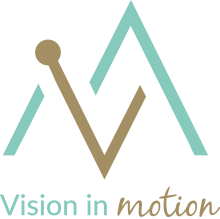HABITUDES® FOR NEW PROFESSIONALS PROGRAMME
Habitudes® for New Professionals programme is meant to teach soft-skills to young professionals as well as for ongoing employee training in the workplace.
This programme was created with one goal in mind: to help business leaders move their new employees from backpack to briefcase. Very often, the workplace is a long distance journey from the school and college campus. The tone of a workroom looks and feels different than a dorm room. The need of the hour is to equip new professionals to not only fit into your workplace, but to flourish in it.
Habitudes® is a breakthrough way to teach soft-skills to young professionals as well as for ongoing employee training in the workplace. Habitudes® has been developed by the US based Growing Leaders organisation that has been training young adults for the past 25 years. In The Art of Launching Your Career Dr. Tim Elmore uses conversations and experiences to illustrate thirteen habits and attitudes all employers desire in team members.
This is an intensive 13-hour programme comprising of core coursework, together with enrichment and teambuilding activities.
The Art of Launching Your Career helps young employees
:- Take initiative and set the pace for other teammates.
- Stay creative, even when a supervisor does not embrace their ideas.
- Overcome a sense of entitlement towards tasks that seem “beneath them”.
- Persevere in a career when it may move slower than they wish.
- Trust their supervisor, even when they do not completely agree with an objective.
The programme covers topics such as perseverance, taking initiative, discipline, going the extra mile, perspective, trust, and more.
Below is a summary of each of the 13 Habitudes®.
1. Overcome a sense of entitlement towards tasks that seem “beneath them.” Show a willingness to serve colleagues and that willingness opens doors to new opportunities.
2. Persevere in a career when it may move slower than they wish. Learning to be patient with slow-growing, steady progress is a valuable mindset that can benefit the young professional to maintain the perseverance that benefits a successful, meaningful career.
3. Take initiative and set the pace for other teammates. Teammates can adopt an approach of imitation, following the crowd and doing only the tasks assigned, or an approach of initiation. By being an initiator a team member can soon become a valued member of the organisation.
4. Make systems (policies, procedures) your friend. Undisciplined workflow results in plenty of movement but without any direction. Using and creating systems allows all members of the team to accomplish work through orderly, repeatable methods.
5. Practice bringing desire, motivation, and passion to one’s work life. One degree extra causes hot water to become steam that can power a locomotive. Participants should realise that it is the little extra that differentiates workers.
6. Realise that by building a reputation of publicly supporting their supervisors, team members will gain private influence with them. Discovering the nature of the organisation’s social currency allows effective leveraging of this important aspect of career success.
7. Practice an awareness that good ideas cannot always be immediately implemented, but they are worth recording in a Motivation File. Through this method team members can avoid feeling that their ideas are being ignored and therefore wasted.
8. Understand how poor perspective can lead to drawing wrong conclusions. View others from a long distance in order to judge the context of their actions, but view one’s own actions at close range. This allows a person to better judge the context from which behaviour arises.
9. Trust one’s supervisor, even when one does not completely agree with him. Realise that absence of trust creates negative effects across teams and organisations.
10. Recognise the importance of exhibiting an attitude of ownership in the workplace. People take better care of things they own than they do of things they rent or use temporarily. Do not rent your work, own it and express a commitment to excellence.
11. Visualise difficult tasks as opportunities to create mastery. Through the commitment of stretching beyond our current skill set we can remove impediments to career growth.
12. Take a proactive approach and identify appropriate actions to resolve workplace conflicts. Initiate conversations with “enemy” co-workers and use a variety of conflict-resolution methods to move the situation from discord to harmony.
13. Work to achieve results not just busyness. Team members must focus their work efforts on activities that will advance both their supervisor and their organisation and thereby experience an increased level of productivity and motivation.

